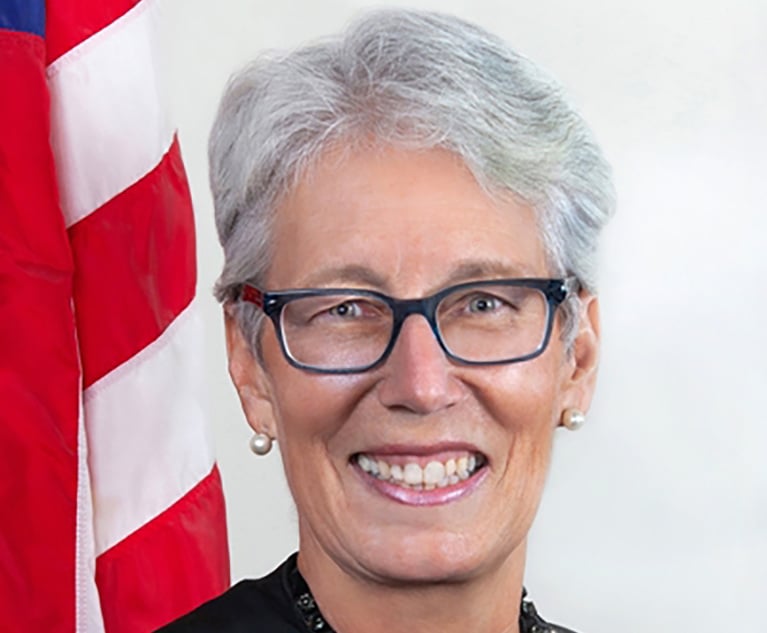 Photo: Corepics VOF
Photo: Corepics VOF Nonprofit Group Reviewing Convictions Involving Hair Evidence, Jennings Says
Delaware Attorney General Kathy Jennings on Monday said that a nonprofit group was conducting an independent review of decades-old criminal convictions in cases involving "potentially questionable" hair evidence.
March 04, 2019 at 04:38 PM
3 minute read
The original version of this story was published on Delaware Law Weekly
Delaware Attorney General Kathy Jennings on Monday said that a nonprofit group was conducting an independent review of decades-old criminal convictions in cases involving “potentially questionable” hair evidence.
Jennings said the Delaware Department of Justice had enlisted Prosecutors' Center for Excellence to conduct the review, after the Federal Bureau of Investigations announced in 2015 that its own internal probe had revealed widespread error in FBI testimony regarding hair analysis that the bureau had conducted in criminal cases prior to the year 2000.
According to Jennings' announcement, at least 90 percent of trial transcripts covered in the FBI review contained erroneous statements or lab reports from FBI examiners.
“We have a responsibility to make the best decisions we can based on the facts as we understand them,” Jennings in a statement. “Given the serious issues that the FBI's errors have raised, I believe that this review is the most responsible step we can take. I'm grateful for the impartiality and experience of the experts we've enlisted and will address the impact of their findings on the integrity of the convictions.”
Jennings said the PCE, which provides expert advice, research and consulting to prosecutors in the United States and Canada, has been evaluating Delaware cases since early February. Similar audits are already underway in other states, including Texas, Massachusetts and North Carolina.
According to the announcement, the FBI has notified the Delaware DOJ on a “rolling basis” of potentially tainted cases, since 2015. But prior to February, state prosecutors had been trying to assess on a case-by-case basis whether the role hair analyses played warranted further action.
Jennings said the “number of cases and the benefit of an independent assessment” had led the DOJ to seek the PCE's help.
“Attorney General Jennings is making the right decision by opting for a proactive, independent review of convictions that could be affected by the FBI's admission of error in its hair analysis,” said Kristine Hamann, executive director of the PCE. “We owe it to the justice system to get this right and are looking forward to completing a thorough review.”
Defendants in individual cases were notified at the same time as prosecutors, and some are currently pursuing post-conviction relief in Delaware courts. In one case, Jennings said, the DOJ has supported retesting hair evidence with current technology.
However, any finding of flawed evidence would not automatically result in convictions being overturned, if there is other evidence—like confessions or DNA analysis—to support the convictions, the DOJ said.
This content has been archived. It is available through our partners, LexisNexis® and Bloomberg Law.
To view this content, please continue to their sites.
Not a Lexis Subscriber?
Subscribe Now
Not a Bloomberg Law Subscriber?
Subscribe Now
NOT FOR REPRINT
© 2024 ALM Global, LLC, All Rights Reserved. Request academic re-use from www.copyright.com. All other uses, submit a request to [email protected]. For more information visit Asset & Logo Licensing.
You Might Like
View All
Attorneys, Professors Share Support for Chancellor Following Musk's Online Attacks
4 minute read

Jurden Announces 2025 Retirement, Capping 24 Years on Superior Court
3 minute read
Trending Stories
- 1'Largest Retail Data Breach in History'? Hot Topic and Affiliated Brands Sued for Alleged Failure to Prevent Data Breach Linked to Snowflake Software
- 2Former President of New York State Bar, and the New York Bar Foundation, Dies As He Entered 70th Year as Attorney
- 3Legal Advocates in Uproar Upon Release of Footage Showing CO's Beat Black Inmate Before His Death
- 4Longtime Baker & Hostetler Partner, Former White House Counsel David Rivkin Dies at 68
- 5Court System Seeks Public Comment on E-Filing for Annual Report
Who Got The Work
Michael G. Bongiorno, Andrew Scott Dulberg and Elizabeth E. Driscoll from Wilmer Cutler Pickering Hale and Dorr have stepped in to represent Symbotic Inc., an A.I.-enabled technology platform that focuses on increasing supply chain efficiency, and other defendants in a pending shareholder derivative lawsuit. The case, filed Oct. 2 in Massachusetts District Court by the Brown Law Firm on behalf of Stephen Austen, accuses certain officers and directors of misleading investors in regard to Symbotic's potential for margin growth by failing to disclose that the company was not equipped to timely deploy its systems or manage expenses through project delays. The case, assigned to U.S. District Judge Nathaniel M. Gorton, is 1:24-cv-12522, Austen v. Cohen et al.
Who Got The Work
Edmund Polubinski and Marie Killmond of Davis Polk & Wardwell have entered appearances for data platform software development company MongoDB and other defendants in a pending shareholder derivative lawsuit. The action, filed Oct. 7 in New York Southern District Court by the Brown Law Firm, accuses the company's directors and/or officers of falsely expressing confidence in the company’s restructuring of its sales incentive plan and downplaying the severity of decreases in its upfront commitments. The case is 1:24-cv-07594, Roy v. Ittycheria et al.
Who Got The Work
Amy O. Bruchs and Kurt F. Ellison of Michael Best & Friedrich have entered appearances for Epic Systems Corp. in a pending employment discrimination lawsuit. The suit was filed Sept. 7 in Wisconsin Western District Court by Levine Eisberner LLC and Siri & Glimstad on behalf of a project manager who claims that he was wrongfully terminated after applying for a religious exemption to the defendant's COVID-19 vaccine mandate. The case, assigned to U.S. Magistrate Judge Anita Marie Boor, is 3:24-cv-00630, Secker, Nathan v. Epic Systems Corporation.
Who Got The Work
David X. Sullivan, Thomas J. Finn and Gregory A. Hall from McCarter & English have entered appearances for Sunrun Installation Services in a pending civil rights lawsuit. The complaint was filed Sept. 4 in Connecticut District Court by attorney Robert M. Berke on behalf of former employee George Edward Steins, who was arrested and charged with employing an unregistered home improvement salesperson. The complaint alleges that had Sunrun informed the Connecticut Department of Consumer Protection that the plaintiff's employment had ended in 2017 and that he no longer held Sunrun's home improvement contractor license, he would not have been hit with charges, which were dismissed in May 2024. The case, assigned to U.S. District Judge Jeffrey A. Meyer, is 3:24-cv-01423, Steins v. Sunrun, Inc. et al.
Who Got The Work
Greenberg Traurig shareholder Joshua L. Raskin has entered an appearance for boohoo.com UK Ltd. in a pending patent infringement lawsuit. The suit, filed Sept. 3 in Texas Eastern District Court by Rozier Hardt McDonough on behalf of Alto Dynamics, asserts five patents related to an online shopping platform. The case, assigned to U.S. District Judge Rodney Gilstrap, is 2:24-cv-00719, Alto Dynamics, LLC v. boohoo.com UK Limited.
Featured Firms
Law Offices of Gary Martin Hays & Associates, P.C.
(470) 294-1674
Law Offices of Mark E. Salomone
(857) 444-6468
Smith & Hassler
(713) 739-1250






